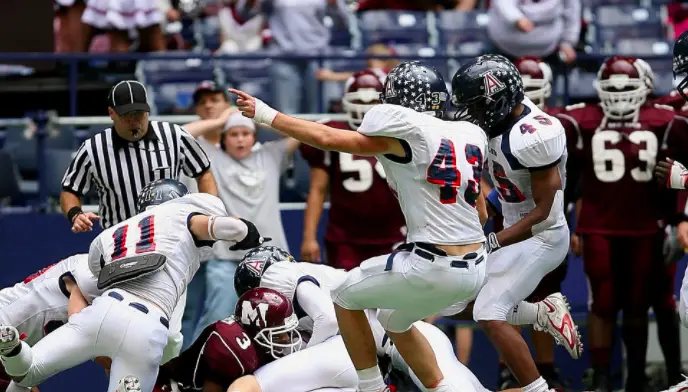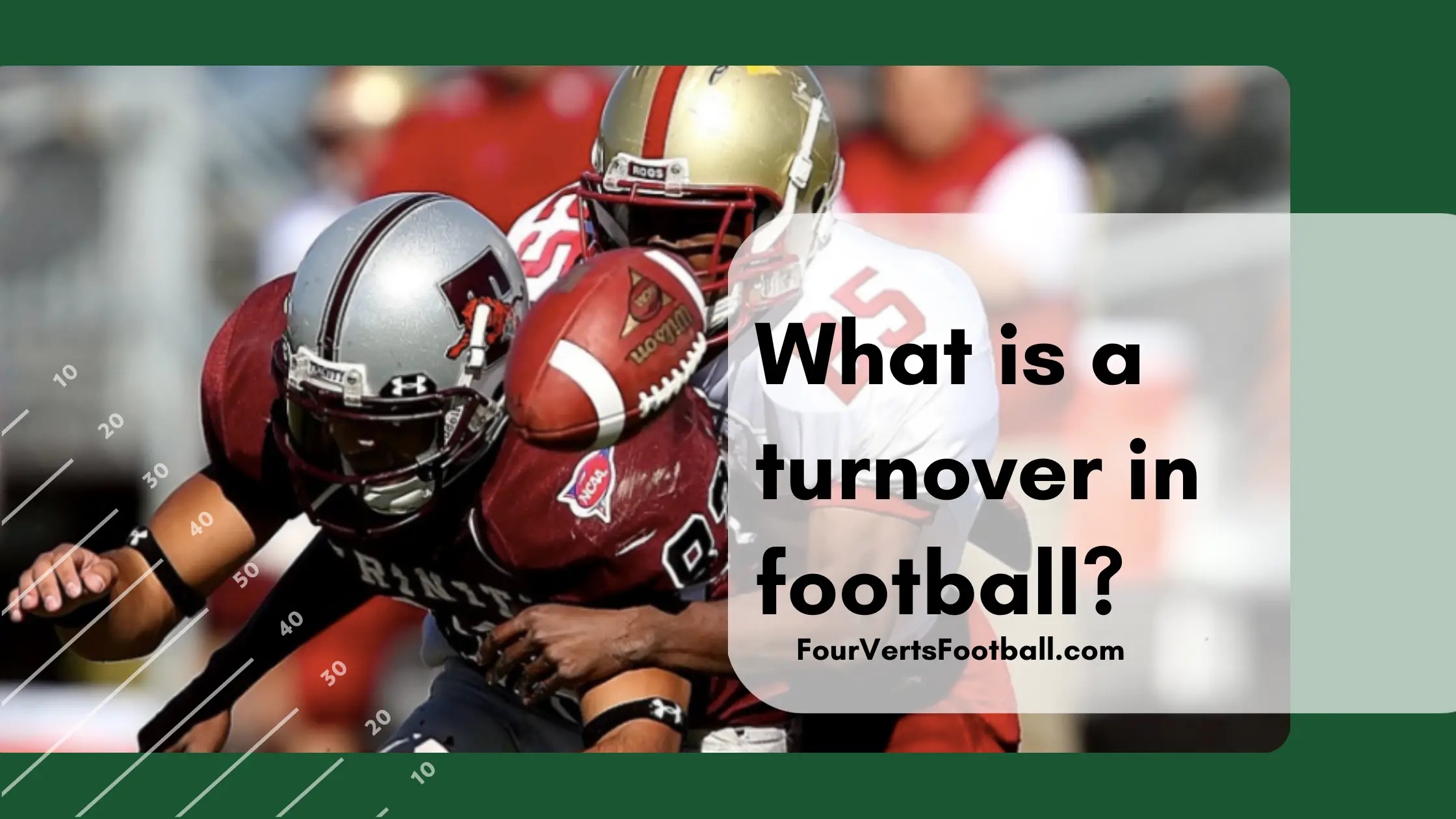A turnover in football occurs when the defense intercepts the ball or recovers a fumble changing the possession of the ball from the opposing team to themselves. The NFL only considers interceptions and fumbles to be turnovers.
It is important to remember that only interceptions and fumbles are considered turnovers according to the NFL. Many fans of the game would consider several other plays to be turnovers, the most common being a turnover on downs.
Interception:
An interception occurs when a defending player catches a pass from the opposing team’s quarterback. At this point, the defending team is given the ball and their offense will take possession of the ball.
Fumble:
A fumble occurs when a player that has established control of the ball drops it into the playing field prior to being tackled. If a defending player is able to recover the fumble they will then get possession of the ball.

What Is A Turnover On Downs
A turnover on downs occurs when a team fails to convert on their fourth down. This means they have exhausted all four of their attempts to get the first down and now must give possession of the ball to other teams.
Turnover on downs most commonly occur in dire situations. Typically on fourth down teams prefer to punt the ball to give their opponent a worse field position.
Though when down by a large number of points teams are forced to attempt to maintain possession of the ball. This means going for it on fourth down as opposed to punting.
And though this play involves a change of possession it is not counted as a turnover by the league.
Is A Punt Considered A Turnover?
No, despite the change of possession a punt is not considered a turnover. There is no clear justification why a punt is not a turnover. But it can be assumed it has to do with the fact it is an intentional change of possession.
Since the punting team chooses to punt for their own benefit I can see why this is not considered a turnover.
Is A Blocked Punt Considered A Turnover?
Blocking a punt is also not considered a turnover in the NFL. It is not clear of the reason why a turnover statistic does not include this as a turnover. Though some think it may be because it does not involve the offense.
Turnover numbers are often used when judging an offenses ability to protect the ball.
One possible reason that this play is not considered a turnover is because it comes on a play in which a change of possession was expected.
Though the punting team was not expecting to have their punt blocked. They were planning to change possession of the ball albeit not via a turnover. The only real change that occurred is the starting field position of the opposing team.
We hope this guide has taught you everything you needed to know about turnovers in football.
What Causes Turnovers In Football
We’ve covered that interceptions and fumbles are turnovers in football but what causes these plays to occur. Below we’ll break down the main reasons for turnovers in football.
Peanut Punch
The peanut punch in football is a maneuver defensive players use in order to generate fumbles. This method was made famous by Charles Peanut Tillman who was prolific at forcing turnovers via punching the ball.
This method works by looking for a vulnerable point of the ball and punching it out of the offensive player’s hands. When done effectively this strategy can force fumbles a large portion of the time.
Bad Throw
Arguably the most common reason that interceptions are created is via a bad throw. Sometimes quarterbacks fail to read defenses properly or simply just miss on their throw.
This leaves opportunities for defensive players to catch the ball. These defensive players have instincts for interceptions and are often able to make quarterbacks pay for bad throws.
Tipped Pass
Another reason that interceptions occur is that passes are tipped before being caught. One situation this often happens is when defensive lineman get their hands up in the air when the quarterback throws the ball.
If they are able to tip the pass it often goes high up into the air giving defensive players a shot to get under it.
Big Hit
One more way turnovers can be created in football is by a big hit. In football players are often hit with a large amount of force. If the player has the ball it can be difficult to hold onto it while being hit.
This often results in players fumbling the ball leaving it on the field for anyone to grab.
Big hits are especially likely to cause fumbles when they are laid on a quarterback. Quarterbacks often don’t see these hits coming making the chance of a turnover being generated even higher.

